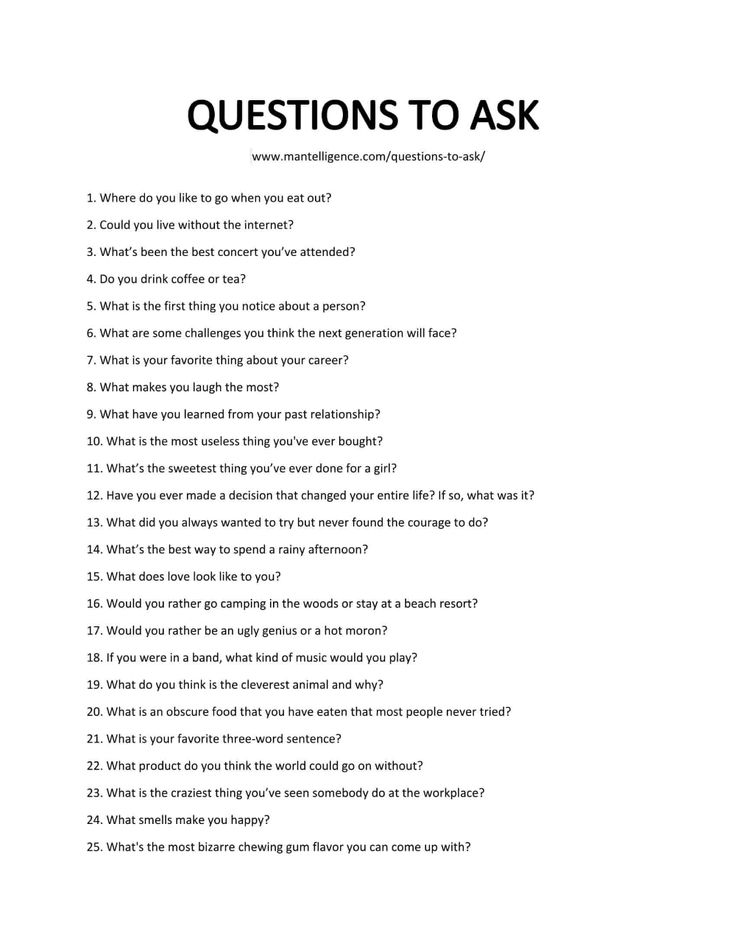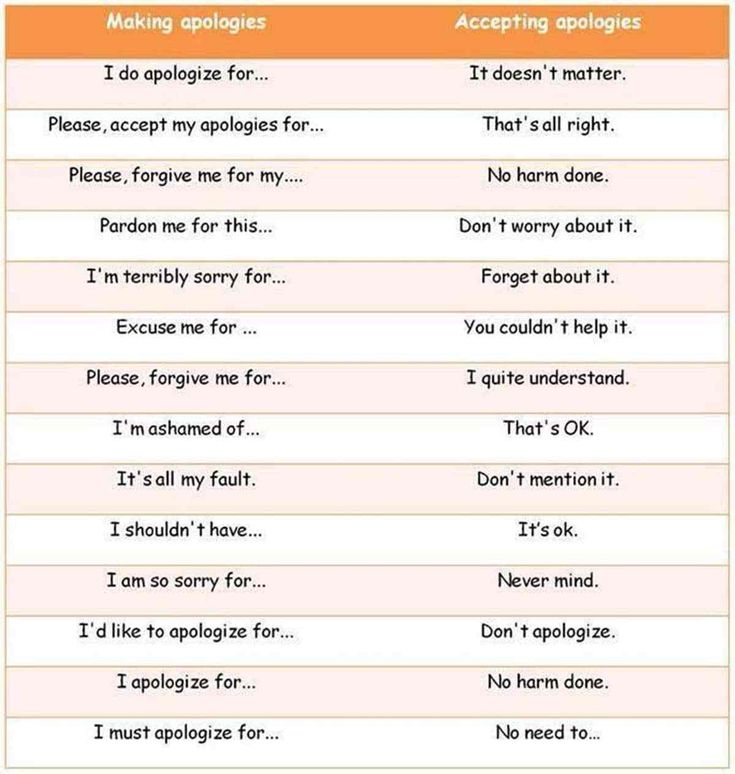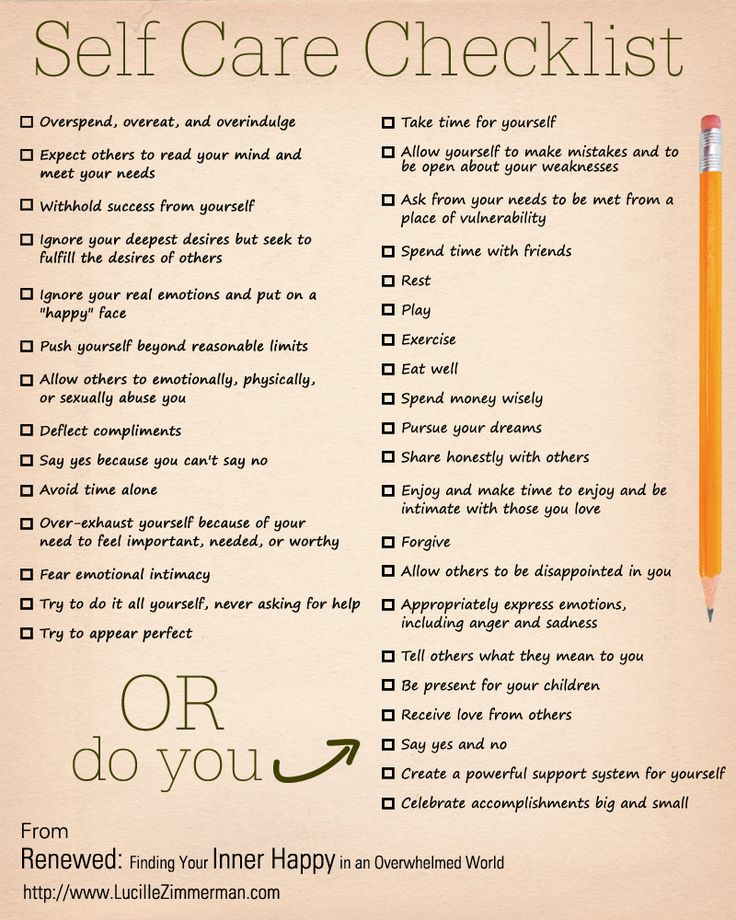Staying strong through hard times
Surviving Tough Times by Building Resilience
Experiencing hardship and adversity
Lately, the world seems to be lurching from one crisis to another. We’ve experienced a global pandemic, dramatic changes to how we conduct our daily lives, economic uncertainty, and political and social turmoil, as well as an array of natural disasters. Then there are personal traumas that people are also dealing with, such as the loss of a loved one, declining health, unemployment, divorce, violent crime, or tragic accidents. For many us, this is a time of unprecedented struggle and upheaval.
Whether the source of disruption in your life is a global emergency or a personal tragedy—or both—living through difficult times can take a heavy toll on your mood, health, and outlook. It can leave you feeling helpless and overwhelmed by stress and anxiety. You may be painfully grieving all that you’ve lost, flooded by a slew of difficult, conflicting emotions, or uncertain about how to move on with your life.
You may even feel that your life is totally out of control and you’re powerless to affect whatever may happen next.
While there’s no way to avoid sorrow, adversity, or distress in life, there are ways to help smooth the rough waters and regain a sense of control. Resilience is the ability to cope with the loss, change, and trauma that have been inevitable parts of life even before these extraordinary times. Building resilience can help you better adapt to life-changing events, cope with turbulent times, and bounce back from hardship and tragedy.
The role of resilience in times of crisis
Why do some people seem to be better able to cope in these troubling times than others? While everyone’s situation is different, it is true that people with resilience tend to have a higher tolerance for the emotional distress generated by hard times. The more resilient you are, the better you’re able to tolerate the feelings of stress, anxiety, and sadness that accompany trauma and adversity—and find a way to rebound from setbacks.
[Read: How to Cope with Traumatic Events]
We all go through bad times, we all experience disappointment, loss, and change, and we all feel sad, anxious, and stressed at various times in our lives. But building resilience can help you to maintain a positive outlook, face an uncertain future with less fear, and get through even the darkest days.
Speak to a Licensed Therapist
The world's largest therapy service. 100% online. Get matched with a professional, licensed, and vetted therapist in less than 48 hours.
Get 20% off
Professional online therapy and tools based on proven CBT strategies. Get instant help, along with your own personalized therapy toolbox.
Get 20% off
Affiliate Disclosure
Building resilience
If you’re more sensitive to emotional distress and are finding it difficult to cope with hardship or adversity, it’s important not to think of it as some kind of character flaw. Resilience isn’t a macho quality and it isn’t fixed; it’s an ongoing process that requires effort to build and maintain over time.
Unless you’ve faced adversity in your life before, it’s unlikely you’ve had the need or opportunity to develop resilience. Drawing on past experiences can help you cope with the challenges you’re facing today. Even if you’ve struggled to cope with adversity in the past, you may at least be able to recognize some of the ways of coping that DON’T help, such as trying to numb your feelings with drugs or alcohol.
While it’s often difficult to imagine anything good coming out of traumatic experiences, building resilience can help you find any positives in the difficulties you’ve faced. Surviving hardships can teach you important things about yourself and the world around you, strengthen your resolve, deepen your empathy, and in time enable you to evolve and grow as a human being.
Building resilience can also help you to:
- Stay focused, flexible, and productive, in both good and bad times.
- Feel less afraid of new experiences or an uncertain future.
- Manage and tolerate strong emotions outside your comfort zone, even those you’d rather avoid like anger or despair.

- Strengthen your relationships and improve your communication skills, especially under pressure.
- Bolster your self-esteem.
- Be confident you’ll eventually find a solution to a problem, even when one isn’t immediately apparent.
You can develop and improve these qualities of resilience at any time, regardless of your age, background, or circumstances. The following tips can help you face hardships with more confidence, better cope with these tumultuous times, and make it through to the brighter, more hopeful days ahead.
Building resilience tip 1: Practice acceptance
While we all react to stressful events in different ways, many of us try to protect ourselves by refusing to accept the truth of what’s happening. After all, by denying that you’re even experiencing a crisis, you can kid yourself that you still have some sense of control over what are usually uncontrollable events.
While denial can have some positive functions—it can give you an opportunity to come to terms with the shock of a traumatic event, for example—over time, it will just prolong your pain. Staying in denial will prevent you from adapting to your new circumstances, stop you from seeking solutions or taking action, and stifle the healing process.
Staying in denial will prevent you from adapting to your new circumstances, stop you from seeking solutions or taking action, and stifle the healing process.
Accept the situation
Change is an inevitable part of life and many aspects of the changing world are outside your individual control. You can’t control the spread of a virus, for example, the pace of social change, or how the economy behaves. While it can be tough to acknowledge, railing against events or circumstances outside your control will only drain you of energy and leave you feeling anxious and hopeless. Accepting your situation, on the other hand, can free you up to devote your energy to the things that you do have control over.
Focus on things within your control. Make a list of all the things you can’t control and give yourself permission to stop worrying about them. Instead, focus on the action that you can take. If you’re unemployed, you can’t control whether the ideal job appears in the wants ads or whether an employer will grant you an interview. But you can control how much time and effort you put into searching for work or brushing up on your skills. Similarly, if a loved one is facing a life-threatening illness, you may have to relinquish control to the medical experts, but you can still focus on providing your loved one with as much emotional support as possible.
But you can control how much time and effort you put into searching for work or brushing up on your skills. Similarly, if a loved one is facing a life-threatening illness, you may have to relinquish control to the medical experts, but you can still focus on providing your loved one with as much emotional support as possible.
Accept change by looking to your past. Looking back at examples where you’ve coped with uncertainty and change before can help you accept your current situation. Perhaps you suffered a painful breakup in the past and were eventually able to move on with your life, or you lost a job and ended up finding a better one? Examining your past successes can also help you see past the current crisis and derive some confidence that you’ll be able to pull through again.
Accept your feelings
It’s tempting to believe that the best way to get through hard times is by ignoring painful emotions and “putting on a brave face”. But unpleasant emotions exist whether you choose to acknowledge them or not. Trying to prevent your emotions from surfacing will only fuel your stress, delay acceptance of your new situation, and prevent you from moving on.
Trying to prevent your emotions from surfacing will only fuel your stress, delay acceptance of your new situation, and prevent you from moving on.
By allowing yourself to feel your emotions, you’ll find that even the most intense, upsetting feelings will pass, the trauma of these tough times will start to fade, and you’ll be able to find a path forward. Talk to someone you trust about what you’re experiencing or use HelpGuide’s Emotional Intelligence Toolkit to reconnect with your emotions.
Grieve your losses
Undergoing tough times usually involves some kind of loss. Whether it’s the loss of a loved one, the loss of a job, or the loss of your old life, it’s important you allow yourself the opportunity to grieve. Only by facing your grief—acknowledging and mourning your losses—will you be able to heal and eventually move on with your life.
Tip 2: Reach out to others
Connecting with friends and family when you’re going through tough times can help ease stress, boost your mood, and make sense of all the change and disruption. Instead of feeling like you’re facing your problems alone, you can draw strength and build resilience from having others to lean on.
Instead of feeling like you’re facing your problems alone, you can draw strength and build resilience from having others to lean on.
The people you reach out to don’t need to have answers to the problems you’re facing; they just need to be willing to listen to you without judging. In fact, what you talk about or the words used are often unimportant. It’s the human connection—eye contact, a smile, or a hug—that can make all the difference to how you’re feeling.
Prioritize relationships. Nothing carries the same health benefits as connecting face-to-face with someone who is caring and empathetic. These days, however, it’s not always possible to see friends and loved ones in person. If you’re kept apart by geography, lockdown, or travel restrictions, for example, reach out to others via phone, video chat, or social media.
Don’t withdraw in tough times. You may be inclined to retreat into your shell when you’re facing challenges in your life. You may fear being a burden to friends and loved ones or feel too exhausted to reach out. But try to keep up with social activities even when you don’t feel like it. Good friends won’t consider you a burden—they’re more likely to feel flattered that you trust them enough to confide in them.
You may fear being a burden to friends and loved ones or feel too exhausted to reach out. But try to keep up with social activities even when you don’t feel like it. Good friends won’t consider you a burden—they’re more likely to feel flattered that you trust them enough to confide in them.
Try to avoid negative people. Some friends are good listeners, kind and empathetic. Others seem to only fuel negative emotions, leaving you feeling even more stressed, anxious, or panicky. Try to avoid anyone who magnifies your problems, criticizes, or makes you feel judged.
Expand your social network. Even though relationships are vital for good mental health, building resilience, and getting through tough times, many of us feel that we don’t have anyone to turn to in times of need. But there are plenty of ways to build new friendships and improve your support network. If you know others who are lonely or isolated, be the one to take the initiative and reach out.
Tip 3: Invest in self-care
Living through tough times can be both mentally and physically draining. Constantly being in a heightened state of stress can lead to serious health problems, impact your immune and digestive systems, increase your risk of heart attack and stroke, and lead to burnout, a state of emotional, physical, and mental exhaustion.
Since the body and mind are so closely linked, investing in self-care is an important part of building resilience and getting through times of great stress. When your body feels strong and healthy so, too, will your mind.
Get enough exercise. When you’re dealing with chronic stress, you likely carry it somewhere in your body. Maybe your muscles are tense, you have back or neck pain, frequent headaches, insomnia, heartburn, or an upset stomach? Getting regular exercise not only releases powerful endorphins in the brain to improve your mood, but it can also help to ease tension in the body and counteract the physical symptoms of stress.
Practice a “mind and body” relaxation technique. Practices such as yoga, tai chi, and meditation blend deep breathing and body awareness to help you relieve stress and bring your nervous system back into balance. Try one of HelpGuide’s audio meditations to boost your physical and emotional well-being.
[Listen: Inner Strength Meditation]
Improve your sleep. When you’re facing adversity, nothing wears down your resilience like missing out on a good night’s sleep. Often, improving your daytime habits and taking the time to relax and unwind before bed can help you sleep better at night.
Eat well. There are no specific foods that can help build resilience and weather tough times. Rather, it’s your overall dietary pattern that’s important. Eating lots of processed and takeout food can take a toll on your brain and mood, sapping your energy, and weakening your immune system. A healthy diet, on the other hand—one that’s low in sugar and rich in healthy fats—can give you the energy and focus to tackle the challenges you’re facing.
Manage your overall stress levels. Taking steps to manage your overall stress can break the hold it has over your life, improve your mood, and help you build the resilience you need to hold up under pressure at this time.
Tip 4: Look for meaning and purpose
It’s easy to get overwhelmed by frightening headlines or consumed by the crisis you’re facing. But whatever your circumstances, it doesn’t have to define you as a person. You are not your crisis. By pursuing activities that bring purpose and meaning to your life, you can keep your problems in perspective, prevent them from overwhelming you, and maintain your identity.
Everyone is different so we all have different ways of experiencing purpose and meaning. Don’t limit yourself by others’ expectations; pursue activities that are important to you and add satisfaction to your life.
Give help to others. When you’re in the midst of a crisis, it’s common to feel powerless and helpless.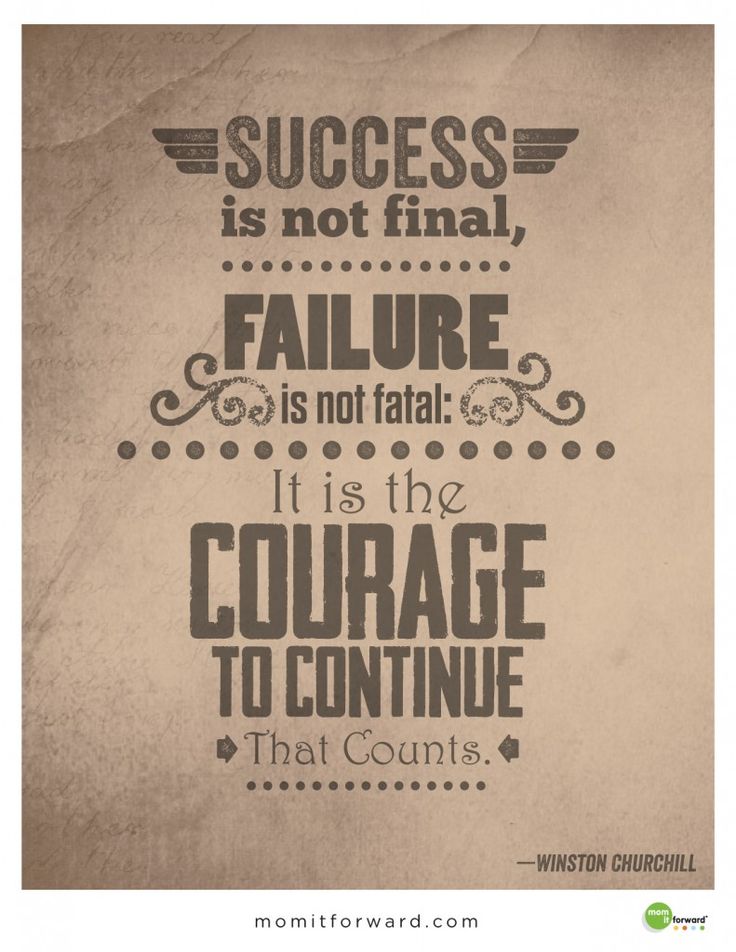 By proactively helping others, you can regain a sense of control as well as find purpose in your life. In fact, giving support can be just as beneficial as receiving support. Try volunteering, helping others in your neighborhood, giving blood, donating to a charity, or marching for a cause that’s important to you.
By proactively helping others, you can regain a sense of control as well as find purpose in your life. In fact, giving support can be just as beneficial as receiving support. Try volunteering, helping others in your neighborhood, giving blood, donating to a charity, or marching for a cause that’s important to you.
Pursue your hobbies and interests. In turbulent times, it’s important not to cast aside interests that nourish your spirit. For many of us, it’s these things that define us as individuals and bring meaning to our lives. Whether it’s playing a sport, caring for a pet, an artistic or musical endeavor, home improvement projects, or spending time in nature, continuing to draw pleasure from your pastimes adds to your ability to cope with the stress of difficult times.
Tip 5: Stay motivated
An important part of coping with adversity and making it through tough times is to foster qualities of persistence and endurance. Tough times don’t last forever, but by their very nature they’re rarely over quickly. As you plot a road through the darkness, you need to find ways to stay motivated and persevere.
Tough times don’t last forever, but by their very nature they’re rarely over quickly. As you plot a road through the darkness, you need to find ways to stay motivated and persevere.
Deal with your problems one step at a time. If a problem is too big to deal with all at once, try breaking it down into smaller, more manageable steps. If your problem seems to have no possible solution, you can still take action by drawing up a list, researching more about the subject, or seeking the advice of a trusted friend or loved one.
Celebrate small wins. To stay motivated and positive as you navigate stormy seas in life, take a moment to savor your small successes. If you’re looking for work, for example, getting an interview isn’t as meaningful as landing a job, but it’s a sign of progress, a step in the right direction. Noting these small wins can give you a welcome break from all the stress and negativity you’re facing and encourage you to keep going.
[Read: Finding Joy During Difficult Times]
Try to maintain a hopeful outlook. While it’s difficult to stay positive and hopeful in the midst of a crisis, many of us tend to blow our problems out of proportion and make them seem even more negative than they really are. Try taking a step back and examining your situation as an outsider. Are their rays of hope that you can focus on? Instead of worrying about what you fear may happen, try visualizing what you’d like to happen instead.
Express gratitude. It may sound trite, but even when you’re experience terrible times, it’s usually possible to find one thing you can be grateful about—the love of a pet, for example, a beautiful sunset, or a caring friend. Taking a moment to acknowledge your gratitude for such small things can provide respite from the stress and really boost your mood.
Be kind to yourself. Everyone adjusts to change and upheaval differently. Don’t criticize your coping skills or beat yourself up for every mistake you make. Self-compassion is an important part of building resilience, so go easy on yourself.
Self-compassion is an important part of building resilience, so go easy on yourself.
Last updated or reviewed on March 4, 2023
7 Strategies That Will Help You Stay Strong During Tough Times
If movie soundtracks have taught us one thing, it’s that it can’t rain all the time and the sun will come out tomorrow. The hard part, though, is knowing how to stay strong until the storm passes. If you need some help with that, read on for a few strategies to use.
Life would be so much easier if it were all rainbows and sunshine every day, wouldn’t it? Sadly, that’s not reality. Hard times are an inescapable fact of human existence. Sometimes, life gets so hard that we don’t know how we’ll possibly manage to stay strong in the face of what’s happening. From dealing with global crises to personal tragedies, these tactics will help you find your inner strength.
1. Accept that some situations are beyond your control
If you look up “how to stay strong during tough times” on your favorite search engine, you’ll notice that “accept reality” is always the first tip. Whether it’s advice from a psychologist or just from someone who has survived hard days, it’s the #1 thing they say we need to do to gather our inner strength.
Whether it’s advice from a psychologist or just from someone who has survived hard days, it’s the #1 thing they say we need to do to gather our inner strength.
It’s easier said than done, of course. There’s a reason why acceptance is the last stage of grief. We have to cycle through all of our other emotions before we reach that point. Denial, anger, bargaining, and sadness all play a role in getting to acceptance. So, while I’ll parrot the number one tip for staying strong because it’s a good one, I’d like to add a few caveats to it, which brings us to…
2. Allow yourself time to grieve and feel all the feelings
Death doesn’t have exclusive rights to grief. In other words, someone doesn’t have to die to validate your right to grieve. Any loss- be it human, a beloved pet, or even your life savings- can cause grief. So, get mad. Feel sad. Scream out to the universe or the powers that be that you’ll do anything to reverse this tragedy. Once you’ve cycled through your feelings (possibly a few times), then you’re ready to accept that there are things in this world that we can’t control and find your inner strength to face them.
3. Never be afraid to ask for help
There’s a scene in an episode of Mr. Rogers where he’s trying to put up a tent. He struggles with it for a minute or so, then says something along the lines of, “I guess this takes two grownups to put up.” In the Tom Hanks movie, the producer tells Mr. Rogers that they can cut it out, or that they can put it up for him before filming. He tells them that it’s perfect the way it is. Why? Because children need to see that sometimes we all need help.
Adults need to hear that message sometimes, too. Being strong doesn’t mean you never need help. Quite the opposite, really. It’s understanding that sometimes we can’t do everything on our own. Recognizing that some problems are too big for one person is one of the best ways to stay strong during tough times.
4. Whenever possible, offer help to those in need
Helping others overcome tough times isn’t just good for the soul, it’s a brilliant way to help yourself stay strong. In fact, a 2015 study by the Association for Psychological Science found that helping friends, family, or even strangers can “mitigate the impact of daily stressors on our emotions and our mental health.” It’s hard to find the strength to help others when you feel like you can’t help yourself, I know.
In fact, a 2015 study by the Association for Psychological Science found that helping friends, family, or even strangers can “mitigate the impact of daily stressors on our emotions and our mental health.” It’s hard to find the strength to help others when you feel like you can’t help yourself, I know.
Here’s the thing, though- you don’t have to perform grand gestures for it to be meaningful. The smallest acts of kindness go a long way in creating both a better world and a stronger you. During our current crisis, many find strength by doing simple things like making face masks for others or delivering food to the elderly. Even just sending a heartfelt email to a lonely friend can help lift both of your spirits and make you feel stronger. See, when you realize that you have the power to help others, you also find the power to help yourself.
5. Take joy where life offers it
We’ve talked about this a lot lately, but it bears repeating. If you want to stay strong during tough times, you need to take the joy that life offers you. A starry night, a bright flower, a bird singing outside your window, the hysterical laughter of a baby…if you look, you’ll find joy all around you.
A starry night, a bright flower, a bird singing outside your window, the hysterical laughter of a baby…if you look, you’ll find joy all around you.
Closing yourself up to those simple pleasures and focusing only on what’s going wrong is a good way to completely obliterate your sanity. I think we often feel like we shouldn’t smile when things are bad because we’ll look insensitive. How can we laugh at a funny show when people are dying, right? Taking a moment for yourself doesn’t mean that you’re turning your back on the problem or ignoring it, though. I promise you, it doesn’t.
6. Reframe your negative thoughts
It sounds like a platitude, but reframing negative thoughts really is one of the best ways to stay strong when life gets overwhelmingly tough. This doesn’t mean that you have to turn into a walking cliche singing about grey skies clearing up while putting on your happy face. Faking happiness doesn’t do you any good.
Instead, think about how you can genuinely reframe a negative. For example, if you’re thinking, “I can’t possibly stand another week stuck inside,” turn it around to “I’ve managed to embrace being alone for a month now and I’m still standing.” If you think, “I can’t survive this loss, it’s too much to bear,” reframe it to, “I have survived losses before and made it through.”
For example, if you’re thinking, “I can’t possibly stand another week stuck inside,” turn it around to “I’ve managed to embrace being alone for a month now and I’m still standing.” If you think, “I can’t survive this loss, it’s too much to bear,” reframe it to, “I have survived losses before and made it through.”
7. Learn from the past, live in the moment, prepare for the future
“Live in the moment,” is another thing you’ll hear from psychologists giving advice on how to stay strong during tough times. Yes, it’s important to remain in the present. However, we can’t just pretend that the past and future don’t exist. Learn from the past, don’t live in it. Take the lessons that it has to offer, then leave it behind. Don’t live for tomorrow, either. Prepare for it, but don’t count on it. Remember, tomorrow is not promised.
Once you’ve given the past and the future their due consideration, pull yourself back into the present. The strongest people know that the only way through life’s toughest moments is to take it step by step and one day at a time. In the words of everyone’s favorite forgetful fish, just keep swimming. Trite? Perhaps, but that doesn’t mean it isn’t good advice.
In the words of everyone’s favorite forgetful fish, just keep swimming. Trite? Perhaps, but that doesn’t mean it isn’t good advice.
The hardest thing about finding your strength is that you only really discover it through tough times. Sure, you can build yourself up ahead of time and prepare to stay strong, but we can only find out if our strategies work when our strength is truly tested. Kind of like how you don’t know if your favorite tree will survive a hurricane until it actually does. So, yes, you can build yourself up beforehand, but remain flexible enough to adjust your strategies when the hurricane hits. Last but not least, remember, you can stay strong because you are strong.
15 simple rules to help you get through difficult times
March 10, 2022 Likbez Life
If there are thunderclouds on your horizon, it's time to open the psychological "umbrella".
Life is a white streak, a black streak, and hard times come to everyone sooner or later. If now it's your turn to overcome the obstacle course and bend under the pressure of circumstances, use simple psychological rules that will make passing the life test of strength much easier and more fun.
If now it's your turn to overcome the obstacle course and bend under the pressure of circumstances, use simple psychological rules that will make passing the life test of strength much easier and more fun.
1. Keep a positive attitude
Life gives us exactly what we focus on at the moment. Pregnant women look around and are amazed at how many of their equally pregnant associates have divorced. Those dreaming of a particular brand of car are starting to see these cars on the streets day after day.
In fact, of course, there are no more pregnant women or cars anymore. It’s just that our brain, focused on its own, filters the surrounding reality and lights a signal lamp: “Here, look, urgently pay attention!” - when he sees an object corresponding to the topic of his thoughts. Psychologists call this the Baader-Meinhof phenomenon.
Output is simple. The more bad you expect, the more you will get.
It will climb literally from all cracks, driving you deeper and deeper into depression. And vice versa: thinking about the good, believing in the best, you change the settings of your own brain - and it is the good that is in the focus of your attention. Let an optimistic attitude not solve all your problems, but the world around you will become much brighter.
And vice versa: thinking about the good, believing in the best, you change the settings of your own brain - and it is the good that is in the focus of your attention. Let an optimistic attitude not solve all your problems, but the world around you will become much brighter.
2. Make lemonade out of lemons
Sounds like a broken record, but it often works. Yes, there are situations in which we really cannot change anything. However, there are others when it is enough to take a step back or to the side in order to look at the problem with a fresh look, connect a little creativity - and voila, an elegant and profitable solution will be found. And not at all where you initially expected. A classic example of this approach is the story of William Wrigley, the man and the chewing gum.
In the 1990s, the company he created unsuccessfully tried to enter the market selling household items - soap and baking powder. Things were going so-so, and in order to at least somehow stand out from the competition, Wrigley came up with the idea of attaching a penny piece of chewing gum to each pack of baking powder.
Alas, the company continued to work at zero, or even at a loss, clouds were gathering over the business, and Wrigley was already ready to accept the fact that he would not make a businessman. However, at some point, an unfortunate entrepreneur noticed that people sometimes buy baking powder for future use only in order to get a package of chewing gum along with it. Archimedes would have exclaimed in his place: "Eureka!"
Wrigley limited himself to completely reorienting the business to the production and sale of chewing gum, which before him was not considered to be any promising product. The result of this creativity and the success that followed it is chewed by the whole world (literally) to this day.
3. Learn From Your Mistakes
What exactly got you into a stalemate? Analyzing all the circumstances can be painful, but extremely rewarding. Break down the events that preceded the worsening of things: what went wrong, where you made a mistake, what could have happened if you had acted differently . .. As a result, you will get a fairly clear idea of how you could have avoided the onset of a black streak . Going through difficult times is much easier if you know that the chances of them repeating tend to zero.
.. As a result, you will get a fairly clear idea of how you could have avoided the onset of a black streak . Going through difficult times is much easier if you know that the chances of them repeating tend to zero.
4. Change what you can change
After identifying the mistakes and miscalculations that led you to a difficult situation, try to correct them. If something cannot be corrected right now, just pay attention to this circumstance to correct it as soon as the opportunity presents itself.
5. Be grateful
And to life - for the experience provided to you, and to those people who surround you. Think about this or that close person: what he brings into your life, what he teaches, what he lends his shoulder to, how you would live without his support.
Write a short (or long, depending on your mood) letter explaining why you are so grateful to have this person in life. Then call him or her and read your creation. The difficulties that you are experiencing at a particular moment will begin to seem less significant when compared with the real values \u200b\u200bthat you have in your life.
6. Focus on what you can control
You may have made many unsuccessful attempts to correct the situation. So much so that you give up and you no longer believe that you can change anything.
Looking for what is still within your power and focusing your attention on it is one of the most effective ways to deal with learned helplessness (that is the name of the state you are currently experiencing).
Yes, you can't improve your business globally, but can you brush your teeth? Go and clean. Can you start running in the morning? Run.
The more things in your life that you can control and manage, the faster your self-confidence will return. And along with it - the will to overcome difficulties.
7. Praise yourself for the past and experienced
Sometimes we are so focused on the present moment that we do not look back. The darkness around seems hopeless. However, it is important to look back sometimes to appreciate how far you have come, how you have changed, what you have gained and what you have left behind.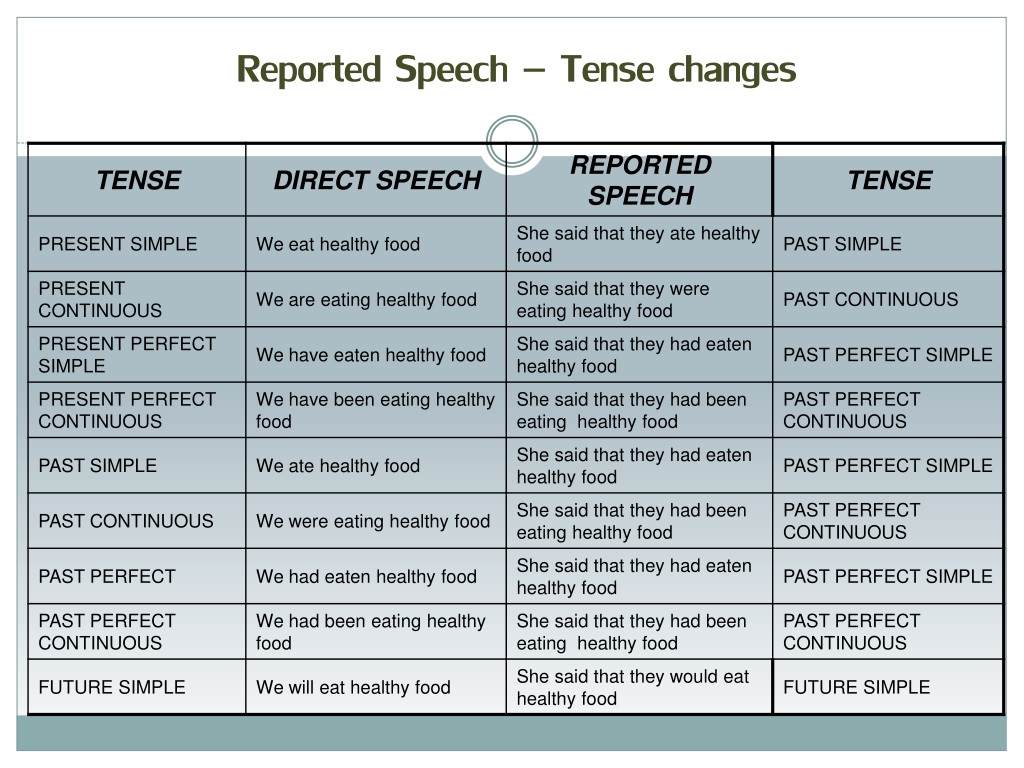 When you see what exactly you have already managed to overcome, the light at the end of the tunnel will become much brighter.
When you see what exactly you have already managed to overcome, the light at the end of the tunnel will become much brighter.
8. Surround yourself with people who understand you
Surrounding yourself with people who are close to you is one of the most important things you can do when you find yourself in a difficult situation. You need their love so that you have something to compare with what is happening around you. You need to take care of them in order to feel significant. You need their honesty to hear the truth and advice from those you truly trust. It is important for you to understand and accept you as you are, so as not to lose faith in yourself.
If for some reason you don't have these people around you, find a community whose members have gone through or are going through what you are going through now. From them you will receive both the necessary support and experience that will allow you to overcome difficulties.
9. Learn to forgive and let go
It happens that difficult times have a specific culprit. “If not for him, everything would have gone according to plan!” - you think and exhaust yourself with hatred for this person. This reaction is natural but destructive: you focus on negative experiences instead of looking for ways out.
“If not for him, everything would have gone according to plan!” - you think and exhaust yourself with hatred for this person. This reaction is natural but destructive: you focus on negative experiences instead of looking for ways out.
Yes, let the person really be to blame, but... You won't be angry at the rain, because of which you get soaked to the skin? Or seek revenge on the gust of wind that broke your umbrella? No, you will do your best to get home as soon as possible and make yourself hot tea, and then fix your umbrella or buy a new one. So here. The culprit is the “element”, which is important to leave behind as soon as possible, focusing on more significant things.
10. Don't blame yourself
Let's say it again: everyone has hard times. It's not you who are bad or improvident, it's just a black streak that is an integral part of life. Every life. Of course, different people have difficulties in their own way. You got this option. Take it as a test that is important to pass with honor, and not as proof of how bad you are.
Not even your worst enemy can harm you like your own unrestrained thoughts.
Buddha
11. Enjoy the simple things
One of the hardest things that hard times bring us is the loss of comfort. When you are doing well, you can find joy in dining at popular restaurants, traveling, hiring a housekeeper to make life easier, buying expensive things. When things start to go downhill, there's a lot to give up, and that's sad.
Meanwhile, to enjoy life, sometimes very simple things are enough. Instead of dining at a restaurant, find some interesting recipe and cook an original (albeit inexpensive) meal with your loved ones. Instead of traveling around Europe, get into the habit of cycling and exploring on Saturdays. Minimalism is in fashion these days. Experience it for yourself now. When else will there be such a chance, right?
12. Review your values and priorities
Failure gives you a chance to revise your values in life, which you didn't even think about on well-fed and calm days. Look inside yourself, look around: what is really important to you? To what extent do your dreams, hopes, aspirations correspond to what is truly significant for you? What can you give up without much worries? Losing what will break your heart? Reprioritization is often the decisive step to overcome a losing streak.
Look inside yourself, look around: what is really important to you? To what extent do your dreams, hopes, aspirations correspond to what is truly significant for you? What can you give up without much worries? Losing what will break your heart? Reprioritization is often the decisive step to overcome a losing streak.
13. Cultivate patience in yourself
In childhood and youth, we sometimes think that we can get everything at once. And only with age comes the understanding that we cannot control time. No matter how strong our time management skills are, there are things for which "the hour has not yet come." A flower won't bloom in February, a baby won't be born right after a kiss, a big secure house won't be built in a day. If you want something of value, you'll have to wait. It is important to understand and accept this.
You can have everything. Just not all at once.
Oprah Winfrey
14. Remember: You always have a choice
Although many things in the world are beyond our control, we can still choose. The choice is how we look at these things, how we react to them, what actions we take, how we let circumstances define who we are. Who are you here and now? Choose. Your turn.
The choice is how we look at these things, how we react to them, what actions we take, how we let circumstances define who we are. Who are you here and now? Choose. Your turn.
15. Take care of yourself
This point is omitted by many, either entangled in self-accusations, or working up to the tenth sweat, or simply postponing until better times. Meanwhile, in order to survive in difficult hours, you need to take care of yourself. What if tomorrow you are incapacitated by overwork or clinical depression? So please yourself no matter what.
Coffee in a cozy café. A walk in the park. New book. Buying beautiful clothes or accessories - let it be a mere trifle, but it will give you a piece of joy! Let yourself sleep, eventually. We are for ourselves the most important and most effective support in difficult times. You can't lose her.
Read also 🧐
- How to stop being afraid of obstacles and problems?
- 4 tips to help you overcome any difficulties in life
- How to develop psychological resilience
5 ways to get through hard times
116,930
Practices how to
1.
 Train yourself to be happy
Train yourself to be happy The ability to be happy is nothing but a habit. “If you can’t take the positive out of what’s happening and only remember the bad, the neural pathways that are responsible for good news aren’t activated in the brain,” says psychotherapist Philippe Peri, author of How To Stay Sane. "If the brain isn't used to receiving good news, it doesn't have the neural pathways to produce it on its own."
It turns out that we ourselves program our well-being. Optimism is a matter of practice. You need to consciously look for, notice and remember what pleases, then a good mood will be with you more often than a bad one. One way is to ask positive questions that open, rather than close, the door of opportunity. In almost any situation, you can ask yourself: what is good about this experience? This is a quick way to change your mood and thoughts with gratitude.
2. Bad is as valuable as good
“Perhaps you are afraid that believing in the best will make you vulnerable and attract unhappiness,” continues psychotherapist Philippa Perry. “The key is to train yourself to accept feelings that can hurt, not avoid them.”
“The key is to train yourself to accept feelings that can hurt, not avoid them.”
Being ashamed or avoiding an experience means getting stuck in some kind of unlived experience
The American writer, Nobel laureate in literature Toni Morrison said this very accurately: “I want to feel what I feel. What belongs to me. Even if it's not a feeling of happiness. Because you are all you have." To be ashamed or to cross out experiences, to run away from them because they hurt, means to get stuck in some kind of unlived experience, depriving yourself of the opportunity to learn an important lesson so that it does not happen again in the future.
3. Giving up is better than hitting a wall
In an old 1934 book, You Can Master Life, Rev. James Gordon Gilkey gives amazing advice. When you go through a difficult life experience, the first impulse is to try to explain, to find the reason why what happened happened. Usually this only provokes confusion, despair and self-pity.
Usually this only provokes confusion, despair and self-pity.
Most difficult life situations cannot be explained - they can only be endured, overpowered and gradually forgotten. As soon as we give up trying to find a reasonable explanation, the tension inside gives way to silence, and it helps to find a way out.
“Why is this so hard for many people? the priest asks. ‒ Because from childhood we were told: to win means to fight and destroy. This is what happens when you are young. Many of the hardships we face in adolescence tend to be short-lived, and a combination of heroic courage, strong will, and perseverance helps overcome them.
But the situation changes with age. We find prison walls in our little world that no hail of blows can destroy. Within these walls, we must spend our day - happily or with hatred in our souls. In the new circumstances, we must consciously change the technique of youth. It is necessary to achieve victory not by attacking the walls, but by accepting them.
4. Shift your focus from yourself to others
In Christianity, one way to feel better when you feel bad is to pray for others. It is not necessary to be a religious person to wish something good to a stranger passing by and feel relieved yourself.
All emotions come down to two main ones: love and fear. And they can't exist at the same time.
The author of The Trick of Life in the New York Times writes that it helped him cope with his panic attacks.
“I sat down on a park bench and began to pray… I prayed for a nanny who was pushing a stroller with a baby in front of her, for a young woman who was jogging next to them in the morning, for a little boy who pedaled a bicycle nearby. I prayed that each of them would always have what I wanted for myself: health, peace of mind, financial stability. By focusing on others, I realized that my problems were no different from the problems of other people, and they stopped putting pressure on me.


